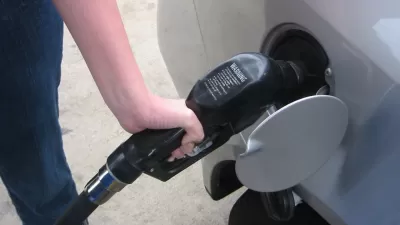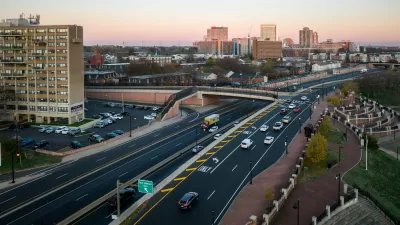"Moving Ahead for Progress in the 21st Century", or MAP-21, follows the path of predecessors SAFETEA-LU, TEA -21, and ISTEA. In this press release by the Senate Committee on Environment & Public Works, Chairman Barbara Boxer of CA launches the bill.
"The current (transportation) authorization legislation, SAFETEA-LU, will expire on September 30, 2009. The new bill will be called MAP-21, Moving Ahead for Progress in the 21st Century.
This legislation will impact all Americans because it sets the policy and provides the funding for transportation nationwide, and this Committee will be taking the lead to authorize this new legislation.
Congress passed and the President recently signed into law the American Recovery and Reinvestment Act of 2009 (H.R. 1), which provided a total of $48 billion for transportation improvements. Of that $48 billion about $27.5 billion was included for the highway program.
The funding provided in H.R. 1 was a good start, but it is not enough.
The National Surface Transportation Policy and Revenue Study Commission, which released a congressionally mandated report in January of 2008, called for investments of at least $225 billion annually over the next 50 years at all levels of government.
The more recent, February 2009, report of the National Surface Transportation Infrastructure Financing Commission estimates that we need to invest at least $200 million per year at all levels of government to maintain and improve our highways and transit systems."
From National League of Cities testimony before committee:
Novak testified that NLC policy supports an increase in the gas tax with indexing for inflation, pointing out that the Denver region recently raised the sales tax to fund transportation programs and the state of Colorado raised car registration fees that will generate an additional $250 million annually, far short of projected needs.
Thanks to U.S.Senator Barbara Boxer
FULL STORY: Boxer Opening Statement: Hearing on the Need for Transportation Investmen

Planetizen Federal Action Tracker
A weekly monitor of how Trump’s orders and actions are impacting planners and planning in America.

Restaurant Patios Were a Pandemic Win — Why Were They so Hard to Keep?
Social distancing requirements and changes in travel patterns prompted cities to pilot new uses for street and sidewalk space. Then it got complicated.

Map: Where Senate Republicans Want to Sell Your Public Lands
For public land advocates, the Senate Republicans’ proposal to sell millions of acres of public land in the West is “the biggest fight of their careers.”

Maui's Vacation Rental Debate Turns Ugly
Verbal attacks, misinformation campaigns and fistfights plague a high-stakes debate to convert thousands of vacation rentals into long-term housing.

San Francisco Suspends Traffic Calming Amidst Record Deaths
Citing “a challenging fiscal landscape,” the city will cease the program on the heels of 42 traffic deaths, including 24 pedestrians.

California Homeless Arrests, Citations Spike After Ruling
An investigation reveals that anti-homeless actions increased up to 500% after Grants Pass v. Johnson — even in cities claiming no policy change.
Urban Design for Planners 1: Software Tools
This six-course series explores essential urban design concepts using open source software and equips planners with the tools they need to participate fully in the urban design process.
Planning for Universal Design
Learn the tools for implementing Universal Design in planning regulations.
Heyer Gruel & Associates PA
JM Goldson LLC
Custer County Colorado
City of Camden Redevelopment Agency
City of Astoria
Transportation Research & Education Center (TREC) at Portland State University
Camden Redevelopment Agency
City of Claremont
Municipality of Princeton (NJ)




























